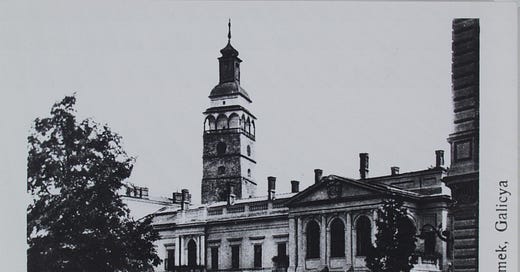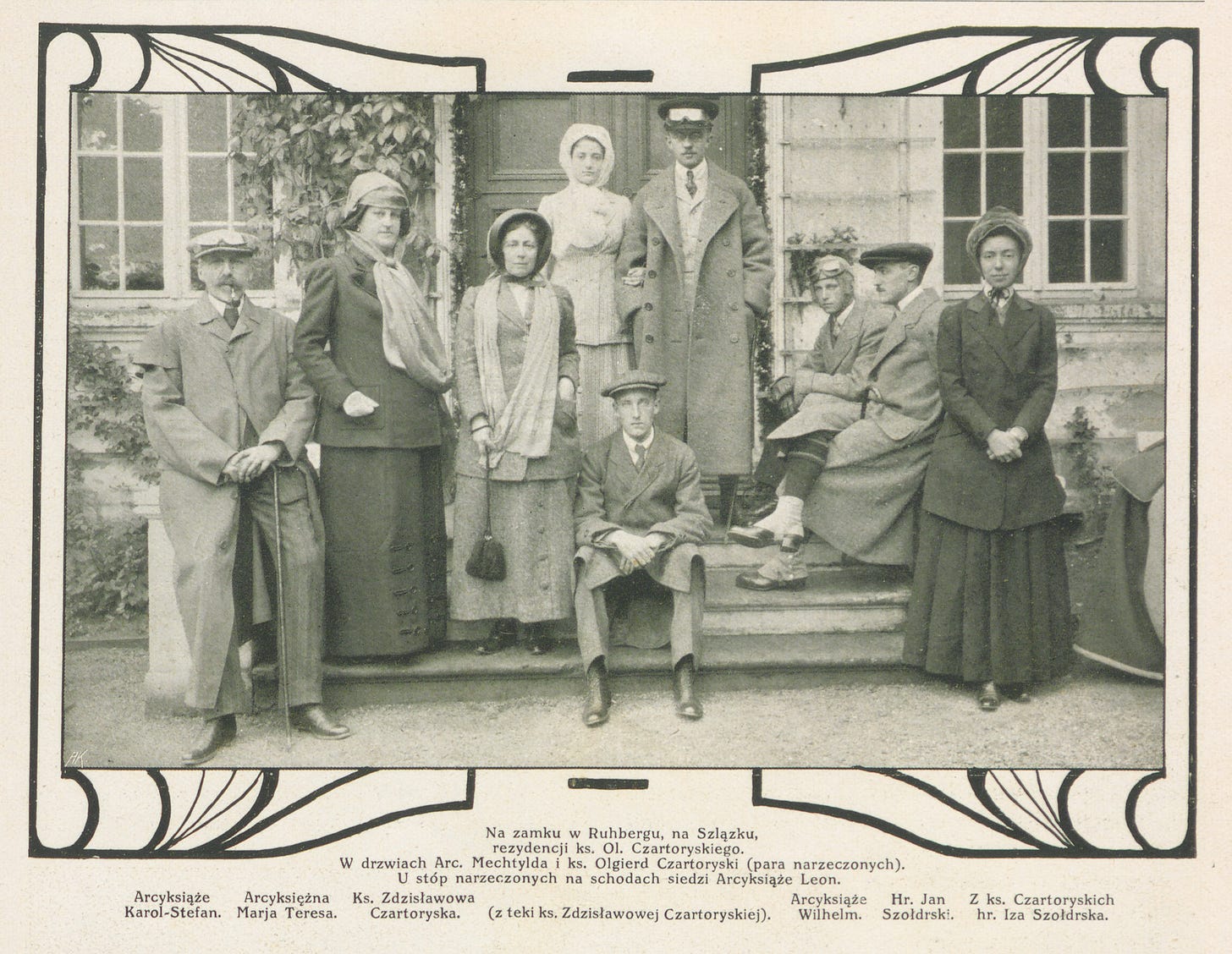King of Ukraine (3): Escape to the Mountains
Some Ukrainian history as we contemplate Russian war
As we contemplate a Russian invasion of Ukraine, let us begin from the people who are most concerned, the Ukrainians, and with what they have to lose. About twenty-five miles from the Russian border lies Kharkiv, Ukraine's second-largest city. The last time Russia invaded Ukraine, in 2014, it staged a rebellion in the city, which failed. Its supporters charged the opera house, mistaking it for town hall. This time, Kharkiv would very likely be stormed in the first week of the war by the regular Russian army.
Last fall, Kharkiv premiered “King of Ukraine,” an opera based upon the true story of a modern aspirant to a Ukrainian throne. The libretto was written by Serhiy Zhadan, a poet and novelist who was hospitalized with head wounds after the attack on Kharkiv in 2014. He was severely beaten after refusing to kneel and kiss the Russian flag.
In a series of six posts (this is the third), which draw from my book The Red Prince, I will tell the true story of the man who once wished to be king of Ukraine. Its lesson: a nation is what you love, not what you inherit.
Understanding that the dusk of empires was the dawn of nations, Wilhelm's father, an Austrian archduke, had become Polish in the hopes of becoming king of Poland. His son Wilhelm would imitate and rebel by becoming Ukrainian. Of course, Poland and Ukraine did not exist at the time. Their national movements, spread across the Habsburg monarchy and the Russian Empire, were rivals in any case, for territories yet to be claimed. The competition of father and son followed the logic of many families, if on a much larger scale.
In the early twentieth century, both Poland and Ukraine realms of the imagination, neighbors divided not so much by lines on maps as by class resentments. This was impressed upon Wilhelm's young mind when his father married his daughters to Polish aristocrats (a Radziwiłł and a Czartoryski) in the hopes of establishing a dynasty. Wilhelm's Polish brothers-in-law had strong ideas about the Ukrainian peasants whom their families had owned for centuries as serfs. They told Wilhelm that Ukrainians were barbarians living from banditry.
That sounded interesting. The boy decided to find these people. He learned that Ukrainians could be found not only in the Russian Empire, where the families of his brothers-in-law still had vast estates worked by Ukrainian peasants, but also in Austrian Galicia, not very far from his father's house, in the Carpathian Mountains. This inflamed the imagination of a teenaged archduke. He studied his father's large map of Galicia, then ran away from home. When he found the Ukrainians he was enchanted by the beauty of their stories and songs. Though Wilhelm met mountaineers of the Hutsul clan, Ukrainians (as he came to understand) were a largely peasant people, often ruled by Polish lords.
All of the gendarmes in the Austrian empire were alerted that the boy was missing, and eventually he was returned to his parents. Henceforth Wilhelm did not hide his sympathy for Ukrainians, and so rebelled against his Polish father and his Polish in-laws. It was rebellion by imitation. In turning toward Ukraine, he was, like his father, embracing a culture of the east. Wilhelm's flight to the Carpathians, where he sought the exotic and found a nation, encapsulates the logic of the national imaginary of the early twentieth century. Anthropologists, demographers, and other scientists visited those same Carpathian mountains, as well as regions further east, in the Russian Empire. On both sides of the border these investigators found the same ethnic group, people sharing a Ukrainian language.
Like Poland, Ukraine had no immediate need for a king, but the glimmer of a crown drew mind's eye of young Wilhelm. The model was right there in front of him. His entire life had been changed by his father's Polish choice, and he understood his father's design. He knew his family history, that Habsburgs gained territories rather by clever adaptation than by warfare. It is impossible to say just when the idea of a Ukrainian throne first appeared clearly to Wilhelm, but it was probably then and there, during his flight from home as a teenager, while he was free and easy with his new mountaineer friends.
(To be continued)






In the next installments, I hope we will learn more about the essential character of Ukrainians as they prepare for what increasingly looks to be a fight for survival. The fact that they had been "a largely peasant people, often ruled by Polish lords" hints at toughness and independence. Which could mean a formidable opponent that Putin may be underestimating.